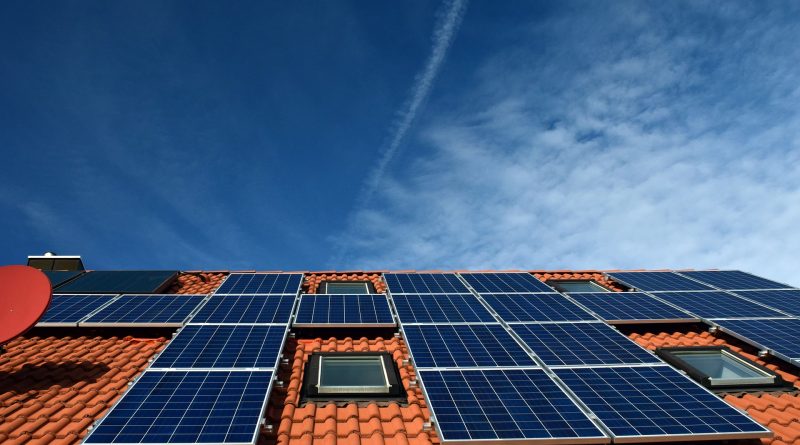Digital Electric Meter: Understanding the Benefits
Table of Contents
Digital Electric Meter: A Modern Solution for Measuring Electricity Usage
In today’s digital age, technology has revolutionized various aspects of our lives, including how we measure and monitor electricity consumption. The traditional analog electric meters are now being replaced by digital electric meters, also known as smart meters. These high-tech devices enable more accurate measurement and provide valuable features that benefit both consumers and utilities. This blog explores the advantages and functionality of digital electric meters, shedding light on their importance in our modern world.
What Is a Digital Electric Meter?
A digital electric meter, or smart meter, is an electronic device that measures and records electricity usage in a more advanced and precise manner compared to traditional analog meters. Instead of relying on rotating dials or moving hands, digital meters use modern technology to display electricity consumption in real-time and transmit data electronically to utility providers.
The Benefits of Digital Electric Meters
Digital electric meters come with a multitude of benefits that enhance the overall efficiency of electricity measurement and usage. One of the key advantages is increased accuracy. Unlike analog meters, which can be susceptible to mechanical errors or tampering, digital meters provide precise measurements, leaving no room for manipulation or discrepancies.
Moreover, digital electric meters offer real-time data, allowing consumers to monitor their electricity usage more effectively. Gone are the days of waiting for the utility bill to arrive at the end of the month. With digital meters, users can access their energy consumption details any time through a secure online portal or a mobile application. This information empowers consumers to make conscious decisions about their electricity usage, helping them reduce energy waste and lower their bills.
Additionally, digital electric meters enable utilities to efficiently manage the electricity grid. These meters can detect power outages and report them automatically, eliminating the need for customers to call and report issues. By providing instant notifications, utilities can respond quickly to restore power and ensure smoother operations.
How Digital Electric Meters Work
Digital electric meters operate by measuring the flow of electricity and converting it into digital data. They use a technology called Automatic Meter Reading (AMR) or Advanced Metering Infrastructure (AMI), which allows for remote communication with utility providers. This technology uses either power line communication or wireless radio frequency to transmit data back to the utility company.
The digital meter consists of two main components: the metering unit and the communication unit. The metering unit is responsible for measuring the electricity consumption, while the communication unit facilitates the transmission of this data. The utility company then collects the data through their network and generates bills based on the recorded measurements.
The Future of Digital Electric Meters
With the increasing focus on sustainable energy and the need to reduce carbon footprints, digital electric meters play a vital role in enabling a more efficient and greener future. These meters can contribute to the implementation of demand response programs, where consumers can shift their energy usage to off-peak hours to alleviate strain on the electricity grid. By encouraging energy conservation and better load management, the future of digital electric meters holds the promise of a more sustainable and reliable energy system.
Conclusion
Empower your energy management with SolarClue®’s insights on the benefits of digital electric meters. By providing real-time, accurate data, these meters enhance energy control and billing accuracy. Features like remote monitoring simplify utility management, supporting responsive maintenance. Digital meters facilitate solar energy monitoring, aligning with sustainable practices. Their compatibility with smart home technologies fosters automation and IoT integration. Real-time feedback empowers consumers to adopt responsible energy use, promoting awareness. SolarClue® guides consumers in assessing cost savings, considering accurate billing, and energy conservation. Join the transition to digital meters with SolarClue®’s expert consultations for informed and efficient energy management. Contact us to empower your energy journey.
Frequently Asked Questions
Digital electric meters, unlike traditional ones, provide real-time, accurate data on energy consumption. They empower users with detailed insights, enabling better control and management of electricity usage.
Digital meters offer precise readings, eliminating errors associated with analog meters. Consumers benefit from accurate billing, increased transparency, and the ability to track energy usage patterns.
Many digital meters offer features like real-time monitoring, allowing consumers to identify high consumption periods. This awareness empowers users to make informed decisions and adopt energy-saving practices.
Remote monitoring enables instant data retrieval without physical inspections. This simplifies utility management, reduces operational costs, and ensures a more responsive approach to maintenance and issue resolution.
Certainly, SolarClue® provides insights into the compatibility of digital meters with solar installations. They facilitate accurate monitoring of solar energy production and consumption, aiding in efficient energy management.
Digital meters serve as a foundational element for smart homes, enabling seamless integration with IoT devices. This integration allows users to automate energy-saving measures and optimize consumption.
Real-time feedback empowers consumers to make instantaneous adjustments, fostering awareness of energy consumption habits and encouraging responsible use for a more sustainable lifestyle.
SolarClue® assists consumers in understanding potential cost savings by evaluating factors like accurate billing, energy conservation, and the ability to identify and address inefficient appliances or practices.
Digital meters enhance grid efficiency by providing real-time data, enabling better load balancing. Consumers can support grid stability by adopting energy-saving measures based on insights from their digital meters.
SolarClue® facilitates a seamless transition by offering guidance on choosing suitable digital meters, understanding features, and leveraging them for optimal energy management. Expert consultations ensure consumers make informed decisions aligned with their needs.



